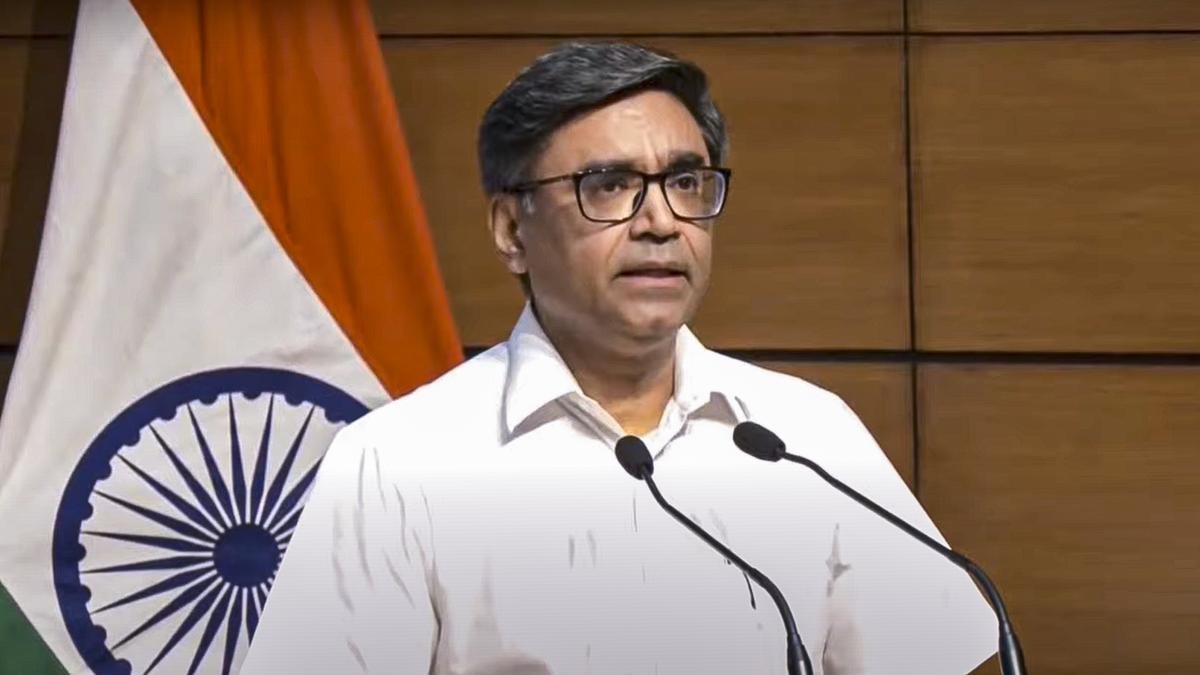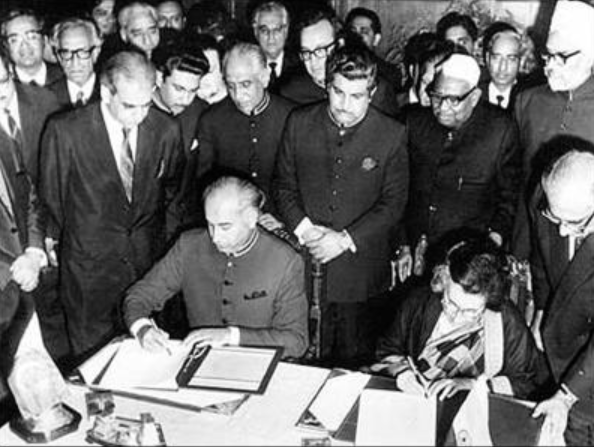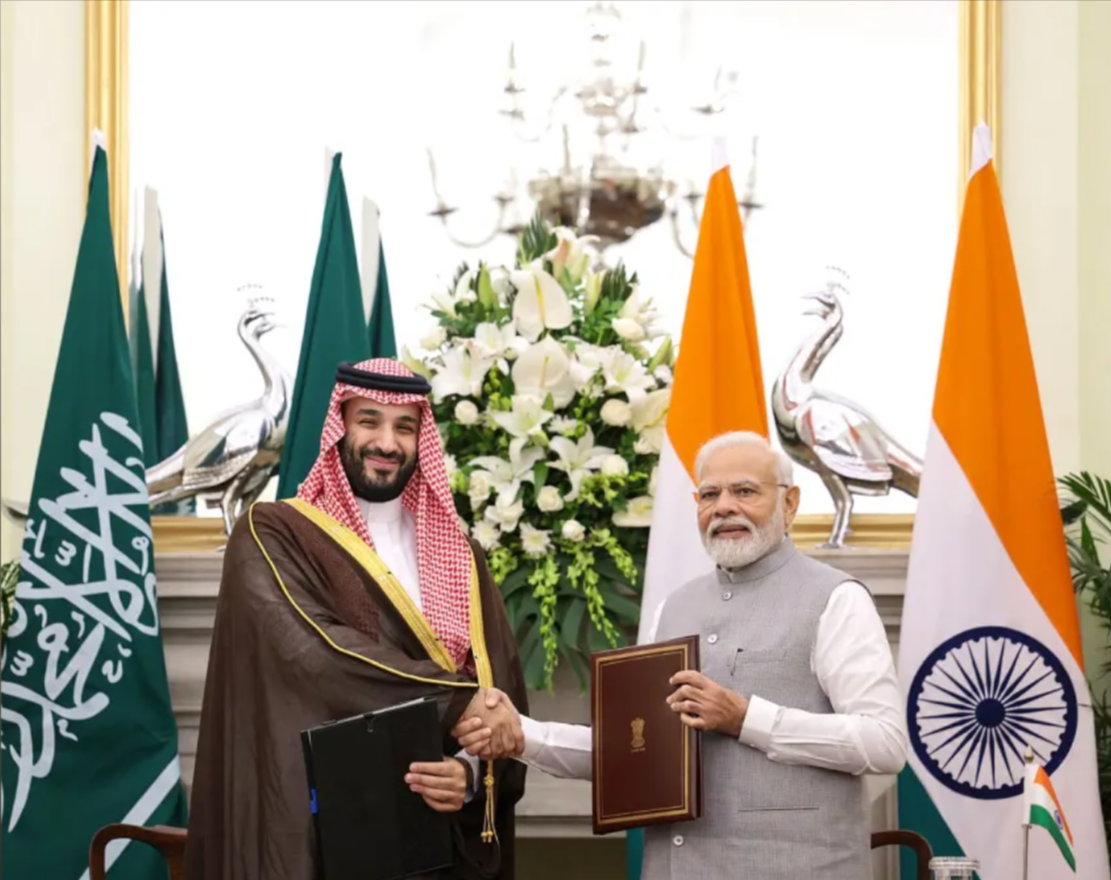
A major trade deal between India and the UK stands as a landmark achievement for developed economy-oriented Indian trade relations while global trade conflicts continue. India pursues trade relationship expansion with the United Kingdom as the nation withdraws from the EU to sign new commercial agreements worldwide. The agreement functions as an initial instrument to obtain expanded market entry for Indian products alongside boosting economic expansion and employment opportunities.
Context:
-
The Free Trade Agreement between India and the United Kingdom targets a trade surge that will exceed $60 billion for goods and services while establishing duty-free access for 99% of Indian merchandise entering the UK.
-
3 years of negotiations produced an agreement granting India duty-free status for 99% of its merchandise sent to the UK.
Key Points:
-
Bilateral Trade Growth:
-
The India-UK Free Trade Agreement aims to grow bilateral trade past $120 billion by targeting a doubling of trade within five years.
-
Through this agreement both nations aim to promote trade between goods and services especially nurturing the development of chemical, textile, gem & jewellery, leather & footwear, base metal industries despite UK trade barriers.
-
-
Duty-Free Access:
-
Indian export-dependent sectors will experience powerful growth from receiving waste-free customs access for their products entering the UK market.
-
-
Reduction in Tariffs:
-
Over the next decade India plans to cut customs duties on 90% of tariff lines and offer free tariffs for 85% of UK exports.
-
Products like dairy and apple remain exempt from these duty reductions because they protect India's crucial domestic industries.
-
Impact on India:
-
Economic Growth: FTA forecasts doubling India-UK trade volume to reach $120 billion over the next five years.
-
Industrial Benefits: The UK has provided duty-free trade availability for chemical industries, textile industries, leather factories, gemstone manufacturers.
-
Increased Market Access: The UK will provide duty-free entry for 99% of India's merchandise imports.
-
Tariff Reductions: The trade agreement includes zero tariffs for 85% of UK products which will enter effect during the next decade.
-
Improved Employment Opportunities: UK extends a three-year exemption to Indian workers from social security requirements.
-
Market Access for Services: The UK market will receive expanded options to use India's digital services within its borders.
-
Automotive Sector Boost: Automobile tariffs reduced from 100% to 10%.
-
Energy Security and Agriculture: Japan needs to accomplish a strategic alignment between ethanol manufacturing and domestic food production.
Impact on the UK:
-
Increased Bilateral Trade: The growing market in India gives UK businesses better access to its textile sector along with its automobile market and service industry.
-
FDI: The likelihood rises that UK investors will extend their funding operations into Indian entities primarily through technology and pharmaceutical industries.
-
Reduced Tariffs: The reduction in India's export duties creates expanded opportunities for UK manufacturers to enter the country's market.
-
Increased Mobility: The broader connection of Indian experts in Information Technology and healthcare sectors becomes possible.
-
Whisky and Gin Market: The UK alcohol industry will benefit from a 75% decrease in tariffs that apply to its export of whisky.
Importance of the India-UK FTA:
-
Strategic Significance: Brexit era trade relations become more diverse as economic relations between both nations become stronger.
-
Model for Future FTAs: Two parties benefit mutually from their trade dealings and investment exchanges and service-sector cooperation.
-
Significant Impact on Exports: India's textiles and automobiles and gems and agricultural products benefit from zero customs duties under this trade deal.
-
Focus on Services: The FTA opens improved opportunities for UK businesses to consume IT and digital services from India.
Challenges of the India-UK FTA:
-
Food Security Concerns: Soaring ethanol output threatens to use valuable agricultural resources thus reducing the amount of available sugar.
-
Market Competition: Indian industrial sectors must brace themselves for sharpened market competition due to UK companies entering their market with focused interest in automotive operations.
-
Rising Imports vs Domestic Industry: Accounting for duty-free access may create increased import competition that puts pressure on domestic manufacturing enterprises.
-
Social and Environmental Concerns: Labor mobility under this agreement along with biofuel environmental consequences present social problems that require immediate solutions.
-
Long-Term Sustainability: For the FTA to succeed India requires stable policies combined with reasonable medicine prices.
Conclusion:
By signing the India-UK Free Trade Agreement both nations formally advanced their economic partnership through a historical agreement. The FTA guarantees duty-free access to 99% of merchandise shipments through its provisions while lowering tariffs on key products and providing expanded market opportunities for Indian industries to realize economic growth and create new job opportunities.



 World Red Cross and Red Crescent Day 2025 – “Keeping Humanity Alive”
World Red Cross and Red Crescent Day 2025 – “Keeping Humanity Alive” India’s foreign secretary, Vikram Misri, briefed member countries of the UNSC about Indian military
India’s foreign secretary, Vikram Misri, briefed member countries of the UNSC about Indian military Warren Buffett stepped down as the CEO of Berkshire Hathaway at the age of 94.
Warren Buffett stepped down as the CEO of Berkshire Hathaway at the age of 94. International No Diet Day 2025 Promotes Body Positivity & Mental Health
International No Diet Day 2025 Promotes Body Positivity & Mental Health India Climbs 3 Spots to 130 in HDI Rankings, But Inequality Remains a Major Challenge
India Climbs 3 Spots to 130 in HDI Rankings, But Inequality Remains a Major Challenge India Restricts Chenab River Flow Amid Rising Pakistan Tensions
India Restricts Chenab River Flow Amid Rising Pakistan Tensions China Launches Shenzhou-20 Mission to Tiangong Space Station on Space Day
China Launches Shenzhou-20 Mission to Tiangong Space Station on Space Day Pakistan suspends the 1972 Simla Agreement: Impact on LOC and India
Pakistan suspends the 1972 Simla Agreement: Impact on LOC and India India-Saudi Arabia Strategic Partnership: Strengthening Bilateral Ties through PM Modi's Visit
India-Saudi Arabia Strategic Partnership: Strengthening Bilateral Ties through PM Modi's Visit






